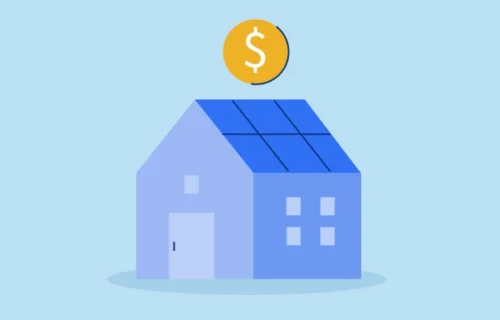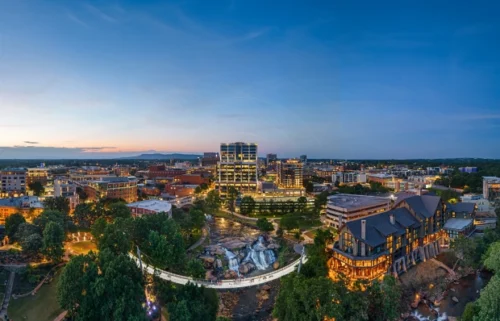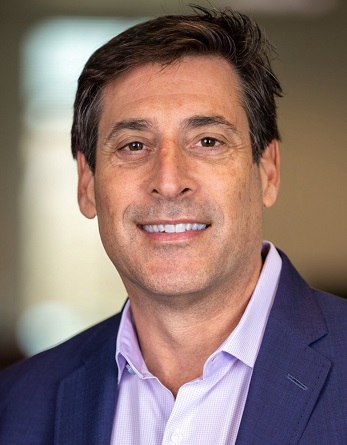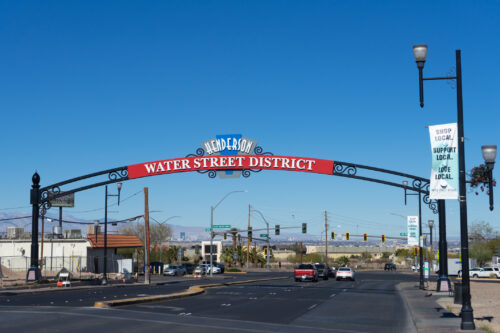
Connect with a Lima One expert today!
If you’d like to know more about this topic or see how it applies to your project, let’s talk.
Ep. 5 – Finding Investment Opportunities in Urban Real Estate
Speaker 1 (Dalton Elliott)
One question before we officially get started. You're in Ohio, right? So Cleveland Browns fan.
Speaker 2 (Chris Knoppe)
I'm a Cincinnati fan.
Speaker 1
Your Cincinnati fan? All right. All right. Why don't you? Oh, I'm just curious. We have our fantasy draft this week in the office. So didn't know if you had any deep on the ground Intel. Have you been if you've been poking over with the binoculars at Browns training camp, what's Baker doing? Oh, how's it going?
Speaker 2
No, no, I don't I'm not I'm not deeply seated in that in that fanfare, where my parents were from Cincinnati. So I'm, I'm a Cincinnati sports fan. But growing up in Columbus, all things revolve around the Buckeyes. So.
Speaker 1
Okay, that makes sense. Make sense? All right. I'll get us going here. Thanks again for jumping on, Chris. I really appreciate it. Sure. All right. Welcome to the Real Estate of things podcast. I'm your host Dalton Elliott. I am joined today by Chris Knoppe of new city homes and see But hold on. Let's stop. I want to make sure I have this right. Is it CBUS OZ?
Speaker 2
Yeah, and actually, if you don't mind, start with President of CBUS OZ FUNDS and partner at New City Homes.
Speaker 1
President of CBUS OZ FUNDS and partner at New City Homes.
Speaker 1
Got it? All right. Always good to get take too in early all. Welcome to the Real Estate of things podcast. I'm your host Dalton Elliott. Today we're talking about opportunity zones. I'm joined by Chris Knoppe, he's president of CBUS OZ FUNDS and partner at New City Homes. Chris is a rockstar real estate investor based out of Ohio. Chris thank you so much for joining
Speaker 2
Dalton It's my pleasure. Thanks for having me. For sure.
Speaker 1
So you chatted a little bit last week to get to know each other and the first question I want to start off with is why real estate you strike me as a guy who would kill it in any field like I look at you talk to you like guy could be an investment banker tech mogul whatever. So why and I guess equally as importantly how did you get into real estate?
Speaker 2
Well first thank you for the compliments Yeah, so looking back I grew up with real family members around me owned real estate and rental properties also built houses. So I think being exposed to that early on, you know had a big impact on me and it actually kind of along the lines of your question my true passions really from I think grade school on were first and foremost entrepreneurship and then develop that develop into a real passion for investment finance. So you know, in when I was younger and you don't really think about it at the time but now looking back on some of the experiences that kind of made you who you are you think well I those things weren't that typical of a fourth grader to do and examples of that I got in trouble in fourth grade selling bead necklaces out of my locker and you know apparently the Catholic school that I went to was really sad teacher wasn't pro-business over all other things. And then the next year it was little toys made out of pen accessories, you know, little parts from pens. So I always kind of had that and curiosity and creativity for entrepreneurship. But really, you know, sports caught my interest for a long time and that really pretty much occupied my time but one summer, I was I was out of sports with a back injury and discovered the stock market I really just fell in love with the stock market and that's, you know, where my passion for investment came from. That mean that same that same summer a friend of mine, his dad worked for a tech company and this was in late 90s. So he had the first CD burner we had ever seen before. So we started mixing our CDs and you know, kids that at our high school liked our mixes, and we started selling them. So there's always been, like entrepreneurship and investment passions, and then, you know, long story short eventually harness that into the real estate background that I had been exposed to a young age.
Speaker 1
Yeah. And you have an interesting start, right? I think I asked you the question, did you start with rehabbing properties or amassing rental properties? The answer to that was neither not the kind of normal gateway into real estate investing. It was new construction for you, right?
Speaker 2
Well, yeah, so it was kind of there was a segment before that. So you know, I think to complete the story, I graduated with a degree in finance, I went to Miami University in Oxford, Ohio, they also have a great entrepreneurship program. And that was what I chose as my minor. That program exposed me to a lot of small business consulting opportunities. And when I was trying to contemplate what I wanted to do after school, really, I wanted to start my own business. But I didn't know if I was ready to do that. And I didn't know what that would be. So I was drawn to interviews with corporate consulting companies based on my experience with small business, I landed a job with Deloitte Consulting, which was a great, great opportunity for me got to travel around quite a bit. But two years into that I, you know, I really, it was this interest in investment that was really driving me and I wasn't getting the exposure, I wanted to, to those industries to real estate or financial services. We were I was being in the Midwest station in the Midwest, I was being put on manufacturing projects. And health care was another big one that we worked in, we did some merger activity. But you know, I started doing a stock fund for friends and family just to appease my interest. And I started, you know, that really just whet my appetite, actually. So I was contemplating careers in asset management, mutual fund companies, stock portfolios, things like that. And that's when I got a call from a family member who was running a rehab lending business. And the, you know, this was back in 2006. So as late 2006, early 2007. So now people listening to this podcast probably understand what I'm talking about. I mean, these are the it's now been a business model that's been embraced by a large institutional companies. But back then it was dominated by a mom and pop businesses, they were called hard money lenders, and they're lending to rehabbers or flippers. The issue that this family member was having was that the main employee managing his loan company, had left and left on short notice. And so the pitch to me was come and run this company and help me grow it nationwide. And I wasn't sure that that was the avenue I wanted to go. I wanted to do more, investing on my own. So after a couple of weeks of contemplating this and some conversations with this business owner, I got a call from my brother, who was stationed in Columbus and had gone right into homebuilding. And he said, you know, if you take this job opportunity, and move back to Columbus, you and I can partner on our own real estate deals. And so I had actually hired my brother to build my first investment property two years before when I graduated from college. So we had worked together before, he was building a few houses a year, he was buying some rental properties and managing some rental properties. So it was really that the cater to my appetite at the time. And so I ended up taking the job, I ended up running the lending company, which was hugely educational for me. But remind you that this was this was in March of 2007, I that I started and was tasked with growing this business to what was really started in Columbus grew to a couple cities and a few surrounding states. And now we're trying to take it nationwide. Well, within a few months of taking the job, we all know what happened. I was at a real estate conference in October 2007. And I had a friend there who was another vendor, he was a mortgage broker. And after every speaker ended, he would come up to me with another update that another one of his bank lending partners had either cancelled their programs or changed their terms raise their credit score limits, to by the end of the three day conference, he didn't have any lenders left for investors. So most of our customers or the loan business that I was running, you know there half of them were selling them when they were fixed up the other half though, or maybe more than half back then we're playing hockey them as rental properties and they were refinancing but and our qualifications for them were to make sure that they would be qualified for the refi programs. So if the refi programs changed or went away altogether, those customers and us as the lender were a bit of a pickle. So we moved into loss mitigation real, real quick that next Monday, and the next couple of years were pretty painful. And but highly educational. And it took a couple years to really look our wounds and, and work with how we would try to get refi opportunities for our customers, we've tried to encourage them to sell and some of them filed bankruptcy and or threw us the keys. And we then became the owners of these properties and had to work through that. So like I said, hugely educational in the real estate world. And then we went on the offensive though, that's the night the nice part of the story is that I learned a lot. And then I got to start running the investment company, I always wanted to. So we started buying the bank owned properties, the foreclosure properties that we had been on the other side of that for a little while. So that was where we got our start was buying Oreos, and then also building homes with my brother. So it was a combination of the two, because real quick after 20 set 2007 home building was not a viable business. So the intention was to continue building houses while doing these rehab loans. But the home building ended really quickly. And really, we didn't get back to that until just a few years ago, you know, when the market fully recovered. So in the meantime, though, we were buying bank owned properties. And we did it in, in really a lot of states, actually. And I thought I'll throw it back to you though, before I get too far into all that.
Speaker 1
Yeah, that is interesting. And yeah, I'm a big believer in adversity, that's, that's when you have your best education. From every standpoint. Getting into the real estate business in oh seven, you definitely set yourself up for, I guess a solid grad school exercise in real estate. So I like the spin on the positive piece like all all's well, that ends well. So you know, we talked a little bit earlier about urban versus suburban investing the past six years or so you said you've been doing urban investing? And can you talk a little bit about the difference between the two? And what has you drawn towards urban investing?
Speaker 2
Yeah, absolutely. So when we were originally building homes, it was all suburban medium price, you know, straight down the fairway, your average family with your average income, able to afford their first house. That was the that was the business model. And when we started buying foreclosure properties, that was the exact same thing, we were buying the properties we would have been building essentially. So it was all houses that were built within the last 10 years or so in your cookie cutter neighborhoods all throughout, you know, outside the outer belt in your average suburban neighborhood. And, and that worked really well because we were buying houses at half the price of what it would have cost us to construct them. And so for a couple years, we had our pick really at what houses we wanted to buy. Now the struggle there is that during those years, it was very difficult to get any large amount of bank financing for the purpose of investment properties. So you had to be selective, you know, that's really what was hindering the market recovery was that financing was not readily available. And it was also difficult to rehab and sell houses at large volume because the market was soft, and it was flooded with inventory. But we did pretty well. And we were able to build a rental portfolio of pretty nice houses all that were built just leading up to that for foreclosure or the mortgage collapse. But what happened next, and this is really interesting is all of a sudden as you got into the years of recovery after that, we found the competition coming back or for the for the first time in a few years really. We competitors emerged and it wasn't your next door neighbor competitor. It was Wall Street backed firms were showing up at the local foreclosure auctions and bidding against us. And that was something new is really something new to the world. Because Wall Street had never been interested in single family homes before. And now it's continues to be a really a growing market class for them or an asset class for them. There's now publicly traded companies that only do that. So we were on the ground floor of that happening. So and of course they had more money than we Did and could borrow money at cheaper rates than us. So it's kind of the theme of I think, my career so far is just adjusting to what is in front of you. And so our options were, well, we either pay too much for the house and lose money or we don't buy the house anymore, and we pack up shop and go home or we figure out another way around it. So we started just working around them, we learned their criteria, they in order to operate at scale that they were doing, they had very strict criteria, their buy box is now the industry term. So anything that was 15 years old, or newer, so a 16 year old house, they would pass on a 15 year old house, they would buy same neighborhoods and everything else. Certain school districts, they wanted to avoid heavy rehabs they were not interested in, they learn that the hard way, I think early on. And so as a local investor, we had local knowledge on our side, we had experience in our city, we had good vendor connections. And we also weren't afraid of construction. You know, from a new construction background, we would tackle a heavy rehab. And so we started buying homes that were more than 15 years old, or needed heavy rehab. And we were able to keep ourselves busy for several years doing just that. And I think I touched on it earlier. But we also started buying out of state. And we did that in a pretty big way actually for a few years. And what we were doing as the central Ohio market became more competitive. We noticed that other states and cities had a delayed
Speaker 2
a delayed flood of foreclosures just due to their the way their judicial systems worked. They had a backlog they were still working through. So while inventory might have been tighter in our market, we found that certain markets on the East Coast For example, we were still able to buy bank owned properties at a discount and quickly resell them at a profit. So we grew that business for a number of years until nationwide, the foreclosures just started to dwindle. And we didn't want to be the outsider competing against locals, you know, when the market really gets hot. Nor do we want to be doing heavy rehabs from far away lesson learned from Wall Street. So that's when we started really looking at urban neighborhoods, I had lived in an urban neighborhood just outside of downtown Columbus for what, at that time, maybe eight years or so. And my brother also had lived downtown, some of our staff at the time, recent graduates from Ohio State and whatnot, they lived in urban neighborhoods. And we just I mean, I noticed that urban neighborhoods were just well I take a step back one or two urban neighborhoods that were the arts district, the entertainment district with the with the restaurants, the bars, the art galleries, those were thriving. But I also noticed that neighborhoods in close proximity, we're talking a half mile away, we're not they were still depressed and people no one was investing in any of those neighborhoods other than the typical low end rental, you know, type of landlord that wasn't really driving the market or changing the market in any way. And the larger Wall Street firms that we were competing with in the suburbs, were not interested in those neighborhoods, at least not at scale, not the a couple of them tried but they nothing sustainable. So that was a major, a major business pivot for us again was you know, first we just kind of stuck our toe in the water doing a few deals in urban neighborhoods. And then we started getting more and more heavily involved to the to the point where we just said look, this is your inventory in the suburbs is so tight, there's so many older homes that need renovated in the city. foreclosures Are not you know that you can just there's homes that need to be fixed up. And, and that's what really drove us into doing that. And, and after we became more established in in doing that business model we found you know, I personally found that when you invest heavily in a concentrated area, and you notice a positive change being made, you can actually change a block and over time change a neighborhood improve it for the better either, you know, remove the boarded up light, which then led to crime, you know, and so all of a sudden, it's cleaner, it's safer. That was more rewarding to me professionally and also on a personal level. And interestingly enough and now not surprising our staff got into it. And when we were just buying random suburban properties and you taking the ugliest house on the street and making it the not ugly house on the street. It's all about repetitive and bottom line and you know it's a business and you're making a positive contribution, but It's very scattered. But what we are doing now is really involved, we moved our office down to one of the larger urban communities that we invest in, which is also an opportunity zone. And we did that before opportunity zones even came out. We wanted to do this before that. And now as you know, we're, we're heavily into opportunities on investing. But yeah, we moved our office down here from the suburbs, and we became part of the neighborhood, I actually moved my family into, into the same neighborhood. And we're, we're heavily involved in the neighborhood organizations, we try to be active with the nonprofits in the neighborhood. And really the whole thing, it's all it's all trying to do, don't get me wrong, we're capitalists, and we have investors and lenders, and we were required to make a profit in order to continue our business. But we also enjoy the positive impact that we're having.
Speaker 1
Right? I want to spend probably the bulk of our time diving into that part of your business. But one thing that you mentioned that I want to really drive home is a question that has come up in the past couple of conferences, I went to I went to an SFR conference in Miami a couple months, maybe two months ago at this point. And then right after that a multifamily one in Atlanta. And there was a lot of talk about, like us versus institutional investors, right? There's this big war that seemed to be setting up on every stage at every one of those conferences. And I think you really hit the nail on the head about the competitive advantage of non institutional investors, there's just so much agility there, you mentioned, you know, if a house is over 15 years old, these hard lines that you're making your buy box, whenever you're buying hundreds or getting into the four figures of a tranche of properties at a time, you're not looking property by property, you are potentially analyzing properties from, you know, the 40th floor in a building in Manhattan versus boots on the ground, like you're talking about, you moved your family to where you invest. Huge, huge positive and huge competitive advantage there that I think, you know, I think people sometimes get lost in the fact of the multi billion dollars tuitions run the gamut and have their pick, kind of, but it's like turning the Titanic, versus the ability to just be agile and make more on an individual property basis, I guess, more informed decision at the property level, as opposed to when you're just buying bulk of 500,000 1500 properties.
Speaker 2
So, yeah, yeah, I think that's a good point. I mean, I yeah, I've been around a lot of smaller entrepreneurial investors. And I've also interacted with the larger institutions. And it does tend to be a little bit of us versus them. And, and the institutions want to get to know how the smaller operators do it because they're trying to improve their business and pick up tips. And I give them a lot of credit when they first jumped into the market. And the criticism was, you'll never be able to do that to scale. It's never been done before. It was a lot like Actually, this is goes way back. But if you It's funny, because it's you know, these people are still alive today, but for looking at you on the screen and knowing about you, you're younger than me and I wasn't professional at this time, at this point in time. But it wasn't that long ago, before the mortgage backed security became invented. And at that time, people said there's no way that you would be able to do that to scale who's going to buy a bond, backed by individual homeowner loans, how are you going to rate those? How are you going to know who's gonna default and who's not. You're crazy. So but Wall Street figured it out. And you know, it really fueled? What we know is the mortgage market today. And, you know, things got a little crazy back in the mid 2000s, as far as underwriting, but today that's been corrected, and underwriting is pretty sound. And our really, our economy revolves around that type of invention. And I think the same thing goes for single family home investing, given enough time, and enough money to figure out your mistakes. They are they're figuring it out. So they were trying to manage things from afar. They were trying to do heavy rehabs. That was very difficult. They've adjusted and they can't do it all which leaves room for smaller operators like myself and some of the other friends I have in the business. But yeah, they figured it out. And they've been They're their business now are there, there's still disadvantages that they have, you know you in order for them to get their economies of scale to really make up for their size. And they've got to have their customers call, I don't know if they all still do it this way, but there wasn't local property management, you call an 800 number, and you might be in Columbus, and you're talking to someone in Chicago. And that as a consumer can get frustrating. So, you know, there's pros and cons to uh, do you want to be able to drop your rent off in person? Do you want to go sit down and talk to the person that you're renting from? Or do you want to do it all electronically? Or, you know, there's, there's pros and cons to both ways. And you know what, like we said before, you just have to adjust to what's in front of you and take whatever competitive advantage you can get. Yeah, and I mean, there's lessons to learn from them to the small operators can look at how large operators do it to scale and try to model their business that way as well and gain some advantage. Yeah, definitely some
Speaker 1
symbiotic relationships to be had there. So opportunity zones, right? I've talked to a couple people over the last week, who do you have coming up on the podcast, sort of Chris snobby? opportunity zone was the first words out of most everyone's mouth. So you, you have carved out a reputation for yourself, which a beautiful thing, a positive reputation, you're linked as kind of an industry expert, really, in opportunity zones. So if we could start at the you know, I'm on Reddit, a lot SEO Li five explained to me like on five, what is an opportunity zone?
Speaker 2
Yeah, so the whole program so to speak, came it's relatively new. So, you know, I appreciate you saying that I'm being recognized as an expert, I think we're just now getting to the point where anyone can be an expert, because it's only been around for a few years. So it's a it's a tax incentive to drive investment into certain areas at its simplest form. So the more robust story is that in December of 2017, as part of a much larger, more comprehensive piece of legislation, which was the tax cut, and JOBS Act, Congress, carved out a few pages, it was only really a few paragraphs that invented opportunity zones. And what they are, are census tracts that are designated by every state's governor. And it's limited to a certain percentage of all census tracts. So that, you know, so that it's not too watered down. It's an it's, it's low income census tracts. And it's neighborhoods or areas that have otherwise been starved for investment. And they're linking the tax incentive to capital gains, which is a really, I think, interesting way to do it. Because in order for somebody to get the tax incentives offered under the opportunity zone program, that means they have to have sold something.
Speaker 2
Now, I think the, you know, the drafters of this legislation, Congress worked with some people in the venture capital world, so it's all set up in the fund model that's so common in venture capital. But investors need to sell something and have a capital gain, and then take that gain and invested into an opportunity zone fund. So I think the intent was not to just reward people that have large gains. I think the intent was to take money out of areas that have already done well. So if you're an investor in we have a neighborhood in Columbus called the short north, that's the arts district that I used to live near. That did well, I bought my primary residence there in 2007. And I don't think it ever went down in value because throughout the recession, because it was just the place to be, well, you know, why is the neighborhood a half mile from they're struggling. So they're trying to motivate investors that own property in places like the short north to sell, take their gain and reinvest it in a neighborhood that hasn't seen that amount of success. And the same thing goes for the stock market, or bonds or if you if you exit a business ownership opportunity, it's any capital gain is eligible for investment in opportunity zones. So if you've owned Apple stock, and you've seen that ride up over the years, and you want to take some of that off the table, again, you're taking money out of a out of an asset class that has done very well, and you're redeploying it into a low income census tract that has otherwise has not seen a lot of investment in the last decade or multiple decades. So I think that was the intent of the of the program. And so, yeah, it what we it kind of happened as I hinted to earlier, as we were making our transition from suburban investors to urban investors. We had some legacy suburban properties. I mean, we still own a few. But we were interested in selling those, we ourselves had capital gains, and we were buying things in the urban neighborhoods. And so an attorney friend of mine, who was really interested in the opportunity's legislation before it even became law, he was telling me about and I said, I don't know, if we're not, we're not, you know, a venture capital fund, we borrow money, we use our own cash, we borrow money from banks, we use private lenders or institutional lenders. I don't know about all this fun stuff. And he's like, well, he's, he's like, just, you know, let's follow it. Let's see what happens. And so the next year in 2018, the governors were tasked with selecting which census tracts would be the opportunity zones. So our governor at the time was john Kay sick. And in my opinion, he did a really good job. He met with a lot of the local leaders in all the various cities and rural areas, and they didn't get it perfect. I don't know that you ever will. And part of the trouble with census tracks is that they overlap different neighborhoods sometimes. So in order to get one, you're including another neighborhood that maybe didn't need it. Or if you didn't want to include an affluent neighborhood, you're missing out on a lower income neighborhood, partially that's in that same census tract. So it's not a perfect science, but they did a generally a good job. And it's also a mixture between urban and rural communities. For me, in being in Columbus, I was more interested in what they did in Columbus. And there's quite a few neighborhoods surrounding downtown Columbus that are historically low income, and back in the 40s 50s 60s, were thriving communities. And since then, they've gradually seen population decline. And there's been some Urban Decay that's happened there. And years and years of disinvestment, and disinvestment, you know, that it left these neighborhoods, you know, they got hit, they already had those problems, and then you had the foreclosure crisis. And then you have your opioid problems throughout the country in Ohio is no exception. It's one of the top EDS, actually. And so they really needed a boost. And so we were coming in already to the communities and investing our own money and doing some projects. But as I figured out the opportunity's own framework for ourselves with how we could take our capital gains and redeploy them into these communities. You know, we put together our own fund, and at first fund was just an internal fund. And we wanted to make sure that we had the mechanics right, and that we could figure out how to apply this venture capital style model to our, you know, single family homes and duplexes, small asset type of business. And within the back of my mind, I knew that if we figured this out, there might be an opportunity then to bring on other investors. So that's what we did the first year. It did take the reason why opportunity zones are still a new thing I say they were created in December 2017. And they weren't actually selected until 2018. And then the Treasury Department is tasked with interpret interpretating the laws of Congress when it comes to tax legislation. So the IRS is the regulator of the Treasury Department is really who sets the tone. And they had a whole year of figuring out okay, there's only four paragraphs of legislation here. What does that actually mean? And in the complicated world of real estate and venture capital, and does this work, does that not work. So there was three different sets of regulations that the Treasury Department released over the course of a year before we actually had what they call final regs, and even then they've amended them. So we were pretty confident moving forward in in 2019, with what we had in front of us, because everything that we were doing was, well, as we viewed it straight down, straight down the path of the intent of the program, and the little things that they were kind of tweaking on the side weren't that material to our business. So we move forward with our first fund in 2019. And then, you know, proving to ourselves that we had that worked out, we then launched the first real fund. That was our second fund, but the first fund for outside investors that following year, and we're now just now announcing our third fund is actually open for investment. So it's been it's been a really interesting way to attract additional capital into the neighborhoods that were already investing in. And it's a way for us to increase the amount of investment and concentration that we're doing. We're seeing more and more It's a larger impact that's happening faster. And I'll give the legislators credit that that was the intent of the program was to drive more capital into the neighborhoods. And it's, it's helped us do what we were already doing or intending to do, but doing it at more scale and having a bigger impact.
Speaker 1
Yeah, it definitely is a program that seems to be working as intended, the stories that you've told about your area, I'm in Greenville, South Carolina, and that so much investment has been, I think you could directly tie it to opportunity zones. So, you know, shocker, something that is working as intended Now that said, Is there anything looking at opportunity zones, if you could go back in time, you would do differently? Like this program? Sounds great. Are there some gotchas, some downsides? Some things to look out for? Is there? Is there any of that?
Speaker 2
Yeah, a couple of things come to mind. So first, being that COVID happened, as people were just becoming aware of this program. And I won't, I won't get into all the tax incentives and different things. But there's three main incentives, and one of which expires eventually. And the intent of that was to get people motivated to take the plunge to be the first people in because the earlier you got invested, the greater that first incentive is that that actually expires. Right now it's scheduled to expire for anyone that doesn't invest by the end of this year. And it's not a mate, it's not the major incentive, the major incentive is your investment in an opportunity zone fund, if you leave it in there for 10 years is tax free when you exit, which is a huge incentive. And then there's also some tax deferral benefits. But it's amplified a little bit if you invest by the end of this year. And so the intent of that was to get people in, but then you had all these people on the sidelines during COVID, for, you know, probably a good year and a half, two year period of time. Because you're still getting a little bit of trepidation. Now we have, you know, nobody knows if we're past it or not. So there is additional legislation being floated out there to potentially extend that benefit. basically say, look, we had COVID, let's just give everybody a pass, you know, extend it for another two years, that would be nice. So we were actually raising our first external fund during COVID, which made for an interesting fundraise, we, we got, we got there eventually. But again, we had to tweak our strategies we weren't doing in person meetings, we were doing webinars and things like that, when you're first investing with someone for the first time, you're not necessarily wanting to do that without a handshake. So you know, so there was COVID. Other than that, and I think that over time, some of the zones will be adjusted like they've, they've already said, if it's a long program, it goes till 2048. It's currently so it 10 years down the road, if one census tract is so successful, that it no longer needs the extra boost, they can read designate another census track. So that would be good. There's also some legislation saying, well, let's it's working, the program is working, let's just expand it a little bit, let's add some more census tracts without taking away any of the existing ones. And I could see that there's communities in our city where I look at that, and I say, well, that that should definitely be an opportunity zone, how's that not. And so it'd be nice to add a few of those. Now, that being said, things I would do differently, as far as the whole structure of the program, I think there's a lot of real positives to requiring capital gains for the reason I mentioned before, you're taking money out of one asset class that has gone up in value, and you're redeploying it into another that needs the investment. But what you're also doing is limiting really who the investors are, that can participate in the program, if somebody doesn't have some sort of asset base to create that game in the first place, you know, they're on the sidelines, they're also on the sidelines. Commonly if they're not an accredited investor, most funds because of just the rules of the SEC, require that you're in a you're an accredited investor. And so you know, the intent of the program is to help you to invest money in the otherwise underserved or under invested and yet, you know, there's only the effluent basically can participate in the program. And I mean, let's not forget, there's a good reason why accredited investor rules exist, it's because they only want people investing money in these types of things who can afford to lose it, they don't want somebody putting all their nest egg in that really doesn't really can't afford to lose that money. So there's good reasons for it, but it also it would be nice, and we're starting to see some crowdfunding platforms really take off that allow people to invest smaller sums and possibly not accredited investors to invest smaller sums. So I think that maybe it can develop a little bit along those lines where more people can get involved.
Speaker 1
Yeah, that's great insight. So I absolutely love what you're doing in Ohio. The fact that you work, live, play invest all in the same area. I think a testament to how bought in you are to what you're doing, how much you believe in it. And how can people get in touch they want to learn more about what you're doing new city homes, CBUS OZ FUNDS? Yeah,
Speaker 2
yeah, thanks. We have social media pages and websites for both CBUS OZ FUNDS and New City Homes. So CBUS OZ FUNDS dot com, and New City Homes dot com. People or maybe you could add my contact information in the show notes. Yeah, after the show would be great. But people are welcome to email me. It's Chris K at New City Homes dot com. And happy to share my phone number as well in the show notes.
Speaker 1
Beautiful. I Chris, thank you so much for taking some time to chat about your story opportunity zones. Really appreciate it.
Thanks so much, Dalton. It's been fun. appreciate you having me.
Speaker 1
Absolutely. And thank you all join in for another episode of The Real Estate of things podcast. Take care.
*Transcript automatically generated from podcast.
Subscribe for More Insights
Get the latest industry news & Lima One updates.









